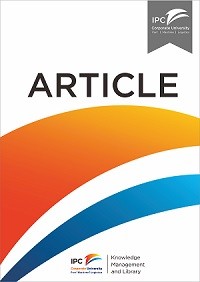Article
Analysis of antifouling agents after regulation of tributyltin compounds in Korea
Diverse new antifouling agents are being used as replacements for the organotin compounds that are currently being banned. A comprehensive study on Korea’s major seaports was conducted between 2006 and 2009 to assess the concentrations of butyltin compounds and new antifouling agents (chlorothalonil, dichlofluanid, Irgarol 1051). The constituents of the pollution due to antifouling agents in major seaportson the Korean peninsula are shifting from butyltin compounds to new antifouling agents. Also, thedistribution of traditional butyltin compounds has centered on the east and west coasts, and the newantifouling agents have polluted the south and east coasts. With the results of this study, our lab was ableto identify keylocations within Korea where focused pollution control of antifouling agents is necessary.
Ketersediaan
Informasi Detail
- Judul Seri
-
Journal of Hazardous Materials
- No. Panggil
-
ATC PO EEA a
- Penerbit
- : Elsevier., 2010
- Deskripsi Fisik
-
8 p.
- Bahasa
-
English
- ISBN/ISSN
-
-
- Klasifikasi
-
PO
- Tipe Isi
-
-
- Tipe Media
-
-
- Tipe Pembawa
-
online resource
- Edisi
-
-
- Subjek
- Info Detail Spesifik
-
-
- Pernyataan Tanggungjawab
-
Seongeon Leea
Versi lain/terkait
| Judul | Edisi | Bahasa |
|---|---|---|
| Ocean shipping deregulation restructures the liner shipping industry | Vol. 41 | en |
| Port state jurisdiction and the regulation of international merchant shipping | en |
Lampiran Berkas
Komentar
Anda harus masuk sebelum memberikan komentar

 Karya Umum
Karya Umum  Filsafat
Filsafat  Agama
Agama  Ilmu-ilmu Sosial
Ilmu-ilmu Sosial  Bahasa
Bahasa  Ilmu-ilmu Murni
Ilmu-ilmu Murni  Ilmu-ilmu Terapan
Ilmu-ilmu Terapan  Kesenian, Hiburan, dan Olahraga
Kesenian, Hiburan, dan Olahraga  Kesusastraan
Kesusastraan  Geografi dan Sejarah
Geografi dan Sejarah